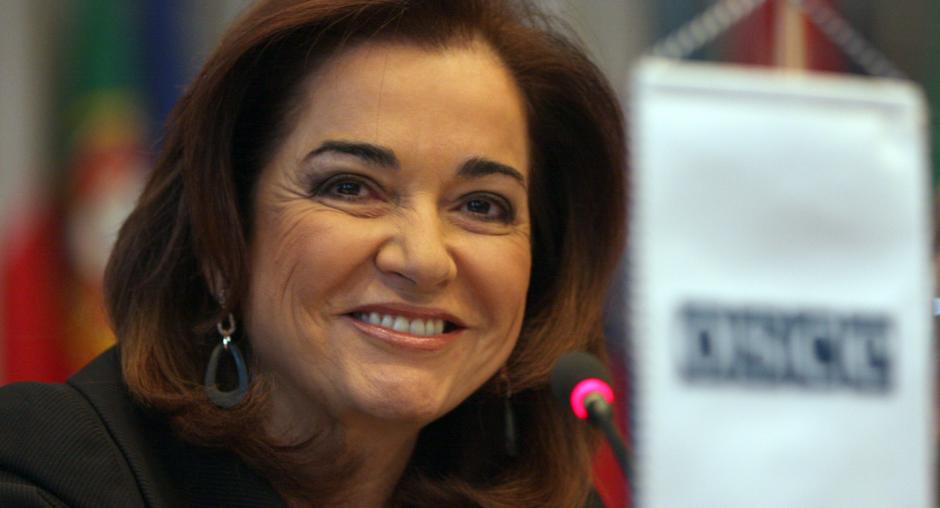'Synergy, symmetry, strategy' - Greek OSCE Chair pledges to be honest broker, forge stronger ties among States in time of challenge

VIENNA, 15 January 2009 - The OSCE is well placed to address Europe's changing geopolitical challenges in a time marked by crises, the OSCE Chairperson-in-Office, Greek Foreign Minister Dora Bakoyannis, said today in her first address to the Organization's 56 participating States.
She also reiterated the 2009 Greek OSCE Chairmanship's commitment to ensuring the continuation of the OSCE's field presence in Georgia.
"Greece assumes the OSCE Chairmanship at a time when the quest for security in our region has become ever more complex," Bakoyannis told the OSCE Permanent Council. "In these circumstances, I believe the OSCE remains a vital point of reference within the UN framework. The OSCE is the only regional forum that encompasses the wider Euro-Atlantic and Eurasian regions. It is also rooted in a unique, ambitious concept of security based upon shared values, agreed commitments and the fundamental dignity of the individual."
She called the crisis in Georgia "both a challenge and an opportunity".
"This crisis has shaken us out of our complacency, and reminded us that our job is not done. It therefore provides us with the opportunity to look afresh at the mechanisms we have created, to re-dedicate ourselves to the full implementation of our agreed commitments, and to consider new ways to build indivisible security," she said.
Bakoyannis also underscored the urgent need to find consensus on continuing the OSCE's work in Georgia: "The future of the OSCE presence in Georgia requires our special attention. It is evident that the situation on the ground and throughout the region requires more OSCE presence, not less. The OSCE has a long tradition of imaginative and flexible solutions, but these can only work if there is good will and political courage on all sides."
Pledging the Chairmanship's commitment to acting as an honest broker, Bakoyannis said that Greece was ready to continue discussions on the future of European security.
Bakoyannis outlined the Chairmanship's priorities for the year, based on the cornerstones of "synergy, symmetry and strategy", including the peaceful resolution of the region's protracted conflicts and enhancing the legal status of the OSCE.
Priorities in the politico-military dimension of the OSCE's work include promoting implementation of OSCE commitments on counter-terrorism as well as border security and policing, including enhancing engagement with Afghanistan, an OSCE partner country.
In the economic and environmental dimension, the Chairmanship will focus on the challenges of migration as well as addressing the security aspects of environmental challenges, especially climate change. "Greening the OSCE" - promoting environmental sustainability within the Organization - will also be a focus.
Bakoyannis said the Chairmanship's priorities for the human dimension of security would be strengthening rule of law in the region, as well as gender equality and mainstreaming.
She also emphasized the OSCE's role in ensuring that the global financial crisis does not threaten stability and security in its region. Addressing energy concerns, Bakoyannis reminded participating States of their commitment, adopted in 2003 in Maastricht, calling for "a predictable, reliable, economically acceptable, commercially sound and environmentally friendly energy supply".
Greece took over the one-year Chairmanship of the Organization on 1 January, succeeding Finland. Kazakhstan will follow in 2010.
